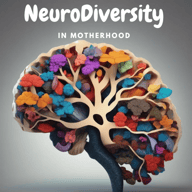Four steps to find life balance in our Journey of Motherhood in NeuroDiversity.


Finding a life balance in motherhood can be challenging, but it is notable for protecting our mental and emotional well-being. Please pay attention to yourself and appropriately care for your mental and emotional well-being. Ultimately, taking care of your mental and emotional health as a mother will positively affect your relationship with your child and their short and long-term neurodevelopment.
Acceptance of your child's uniqueness is the first step to finding a life balance. Raising a neurodiverse child can be a very challenging journey at times. As mothers, embracing our children's uniqueness is a crucial first step to finding a balance in motherhood, and each will need a different time frame for the truth acceptance.
The second step in our unique motherhood journey is to enhance our life balance, prioritising our mental and emotional well-being. As a mother, the constant demands of work, family, caregiving and the need to nurture our mental and emotional well-being can be a delicate juggling act. Still, we must recognise that our mental and emotional well-being matter as a person. Finding balance in our lives as mothers of neurodivergent children can sometimes feel overwhelming due to the Automatic Negative Thoughts (ANTs) that we all have as a mother in special mothers raising a neurodiverse child.
To begin cultivating life balance, we must consider incorporating self-care rituals into our daily or weekly routine; it can be a time to read, exercise, have a long warm bath, or enjoy a warm cup of tea in silence. Self-care in motherhood is a necessity, not a selfish act. When prioritising our mental and emotional well-being, we develop resilience and are better equipped to handle the daily challenges of maternity and raising a neurodivergent child. Encourage the mother to take breaks, even if brief, and recognise that these respite moments will ultimately benefit you and your entire family.
The fourth step to finding a life balance for any mother is setting realistic expectations in motherhood. It is another vital aspect of motherhood that will enhance mental and emotional well-being; as a mother, it's easy to fall into the trap of comparison, as we all do from time to time, believing that your family's journey should mirror that of others. However, every motherhood experience raising a neurodiverse child is unique, and so is every household experience; we must accept that some days will be more challenging than others. Embrace the idea that it's okay to reevaluate our goals and timelines, celebrate small victories in motherhood in neurodiversity, and recognise that the child's progress, however small or slow, is still progress.
The fourth step in contributing to achieving our life balance is a support network. Connect with family, friends, and other mothers with similar experiences and challenges. Sharing your unique journey with other mothers raising a neurodiverse child who understands can lighten your emotional load, transforming feelings of isolation into a sense of belonging. Remember, it's okay to lean on others and seek help; nowadays, online communities that embrace neurodiversity are more popular than ever.
In conclusion, finding a life balance in motherhood can be challenging, but it is notable for protecting our mental and emotional well-being. Raising a neurodivergent child is crucial to understanding the importance of life balance in our motherhood journey. Please pay attention to yourself and provide appropriate care for your mental and emotional well-being. Ultimately, taking care of your mental and emotional health as a mother will positively affect your relationship with your child and their short—and long-term neurodevelopment.
